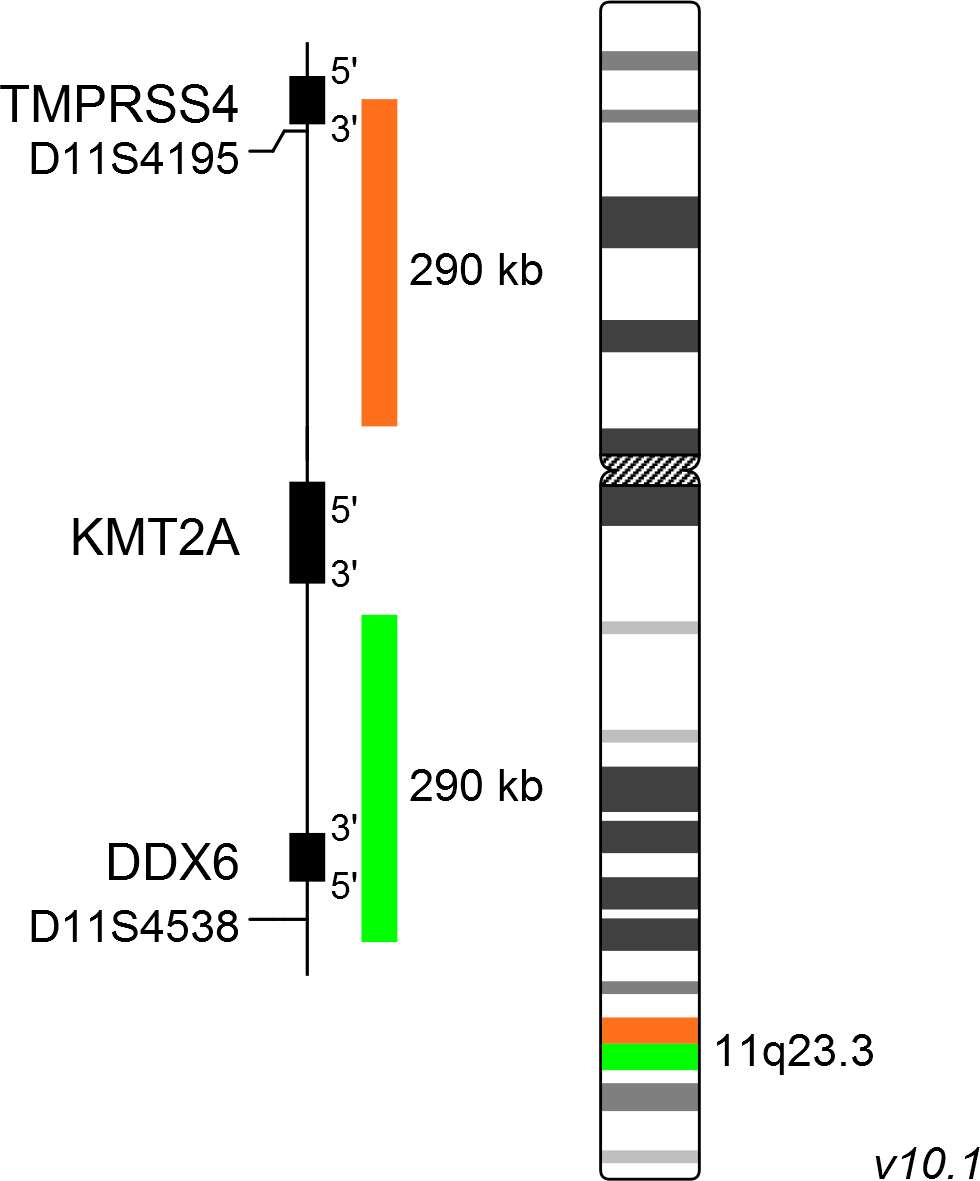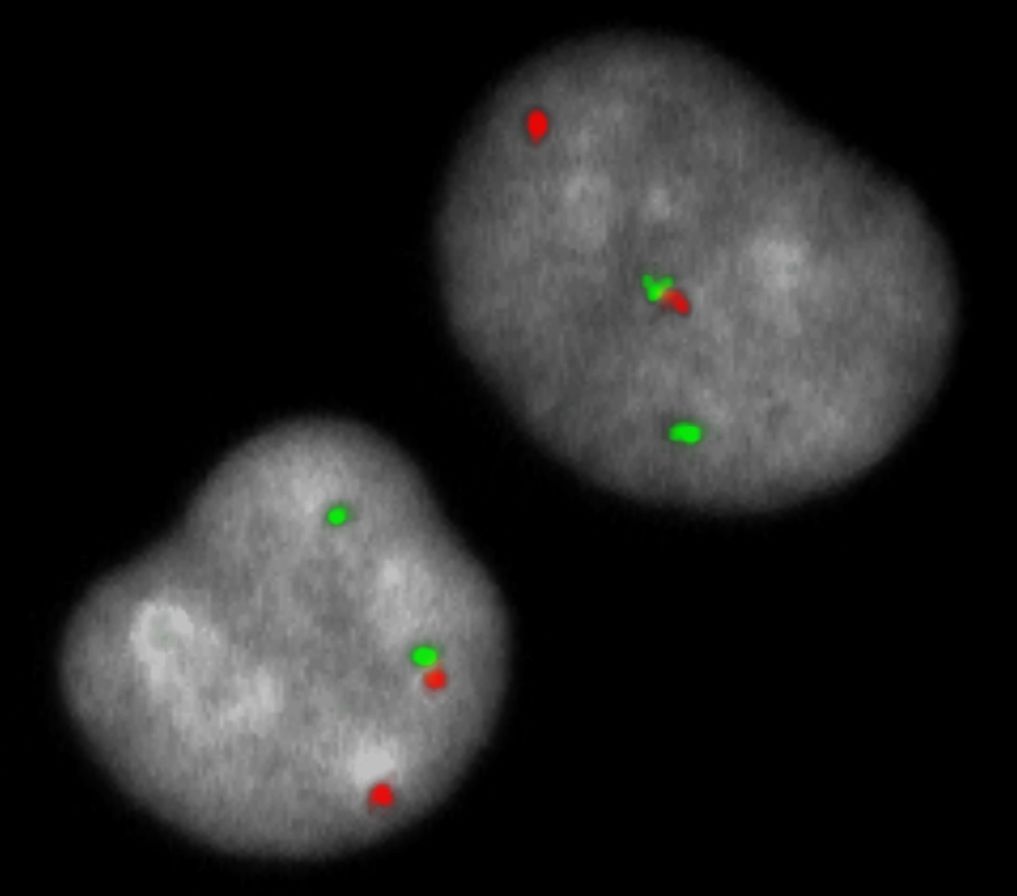
XL MLL plus
Break Apart Probe
- Order Number
- D-5060-100-OG
- Package Size
- 100 µl (10 Tests)
- Chromosome
- 1111
- Regulatory Status
- IVDD
IVDR Certification
This probe is IVDR-certified in compliance with the Regulation (EU) 2017/746 on in vitro diagnostic medical devices (IVDR).
MetaSystems Probes has already certified a wide range of FISH probes, according to IVDR.
This product remains IVDD-certified until further notice.

XL MLL plus consists of an orange-labeled probe hybridizing proximal to the KMT2A gene region at 11q23.3 and a green-labeled probe hybridizing distal to the KMT2A gene region at 11q23.3.
Probe maps for selected products have been updated. These updates ensure a consistent presentation of all gaps larger than 10 kb including adjustments to markers, genes, and related elements. This update does not affect the device characteristics or product composition. Please refer to the list to find out which products now include updated probe maps.
Probe map details are based on UCSC Genome Browser GRCh37/hg19, with map components not to scale.
A number of recurrent chromosomal abnormalities have been shown to have prognostic significance in acute lymphoblastic leukemia (ALL), especially in B-precursor ALL. Some chromosomal abnormalities, such as high hyperdiploidy and the TEL-AML1 fusion, are associated with more favorable outcomes, while others, including the t(9;22), rearrangements of the KMT2A gene (chromosome 11q23), and intrachromosomal amplification of the AML1 gene (iAMP21), are associated with a poorer prognosis.
Chromosomal rearrangements involving the human KMT2A gene are recurrently associated with the disease phenotype of acute leukemias. The identification of KMT2A gene rearrangements is necessary for rapid clinical decisions resulting in specific therapy regimens. Amplification of KMT2A in myelodysplastic syndrome and acute myeloid leukemia has also been observed, and transcriptional similarities between KMT2A amplified and KMT2A rearranged leukemias were identified.
Clinical Applications
- Acute Lymphoblastic Leukemia (ALL)
- Acute Myelogenous Leukemia (AML)

Normal Cell:
Two green-orange colocalization/fusion signals (2GO).

Aberrant Cell (typical results):
One green-orange colocalization/fusion signal (1GO), one separate green (1G) and orange (1O) signal each resulting from a chromosome break in the respective locus.
- Poppe et al (2004) Blood 103:229-235
- Meyer et al (2006) Leukemia 20:777-784
- Cavazzini et al (2006) Haematologica 91:381-385
Certificate of Analysis (CoA)
or go to CoA Database




